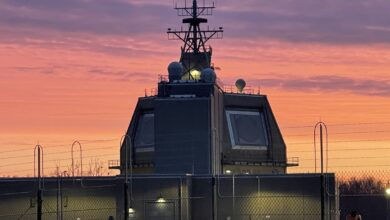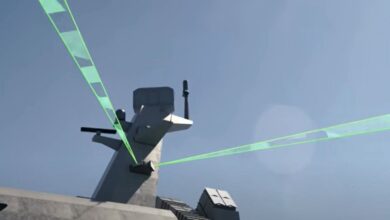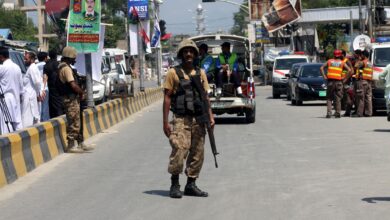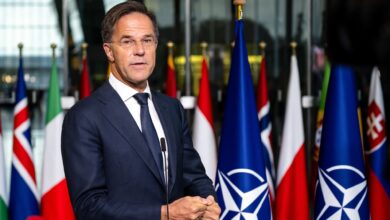NATO could help with Afghan election security, Stoltenberg says
NATO forces could help ensure security for Afghanistan’s upcoming elections, alliance chief Jens Stoltenberg said Thursday, three years after they ended their combat operations in the country.
Days after a suicide bomber killed 57 people at a Kabul voter registration centre, highlighting the security challenges around October’s parliamentary polls, Stoltenberg said NATO forces could play a “limited” security role.
The U.S.-led alliance handed over responsiblity for security in Afghanistan to local forces at the end of 2014 but has a 13,000-strong training and support mission in the country.
“Our main contribution to make sure that the elections can be held in a safe and secure way is to continue to provide support to the Afghan security forces with training, with advice and also with funding,” Stoltenberg told reporters on the eve of a meeting of NATO foreign ministers.
“Having said that, I also envisage a limited role for NATO forces to help to make sure that elections can be held in a safe way.”
The Taliban and other militant groups have been resurgent since NATO ended its combat role and on Wednesday the militants announced their annual spring offensive, heralding the start of Afghanistan’s so-called “fighting season”.
The Taliban said the offensive was partly a response to U.S. President Donald Trump’s new strategy for Afghanistan announced last August, which gave U.S. forces more leeway to go after insurgents.
NATO is also in the process of expanding its Resolute Support mission by 3,000 troops and Stoltenberg said the alliance’s commitment to Afghanistan would not waver.
“The Taliban have to understand they can never win at the battlefield,” Stoltenberg said.
“We will continue to train, to advise and to support Afghan national security forces and that will provide the framework, the conditions for the Taliban at some stage to sit down and negotiate for a peaceful solution.”
The Taliban on Thursday claimed responsibility for attacks across Afghanistan. Assaults on security checkpoints and other installations in Kunduz and Faryab provinces killed more than 20 military personnel, while the deputy governor of Logar province was killed in an ambush.
The Taliban’s spring offensive announced on Wednesday appeared to be a rebuff to President Ashraf Ghani’s February offer of peace talks, though the militants’ announcement did not refer to it directly.
Ghani’s government is under pressure on multiple fronts this year as it prepares to hold October’s long-delayed elections while its security forces struggle to get the upper hand on the battlefield and prevent civilian casualties.
A NATO official said the alliance was looking to help with election security “within the existing mandate” on security planning and coordination.
With reporting from AFP












